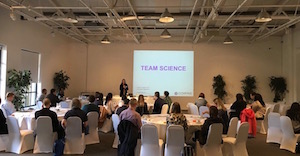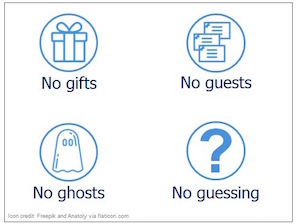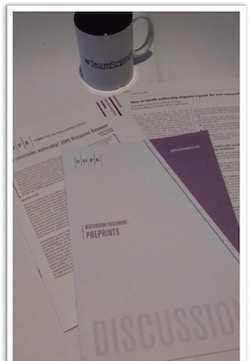“Communication let me down…”
Well it may do (to borrow a lyric from ‘Communication’ by Spandau Ballet), but it doesn’t have to, if communication channels are kept open. That was the take home message following a stimulating afternoon tackling some big questions around authorship with early career researchers of the joint COMPARE (Centre of Membrane Proteins and Receptors) initiative.
 The COMPARE initiative aims to foster strong collaboration between the Universities of Birmingham and Nottingham. The emphasis is on a “team science” approach to build a collaborative network between two institutions with different, but complementary, research interests and skills. There is the opportunity for early career researchers to network with peers and discuss the challenges of conducting research. So, with this in mind, the morning focused on career development, recognition, speed networking and speed grant writing. The afternoon was spent grappling with the complex issues around authorship ethics.
The COMPARE initiative aims to foster strong collaboration between the Universities of Birmingham and Nottingham. The emphasis is on a “team science” approach to build a collaborative network between two institutions with different, but complementary, research interests and skills. There is the opportunity for early career researchers to network with peers and discuss the challenges of conducting research. So, with this in mind, the morning focused on career development, recognition, speed networking and speed grant writing. The afternoon was spent grappling with the complex issues around authorship ethics.
 During the afternoon’s panel debate we discussed ghost, gift and guest authorship (where researchers are unfairly left off or added to papers) and how difficult is it to determine the extent to which this occurs. There was general agreement that the use of authorship order to indicate involvement in contributions to a paper is outdated, and personal contributions need to be recognised. It was heartening to hear senior Principal Investigators share that when they consider people for roles in their labs it is not about position on a paper. They consider the work that an individual did and the overall research path taken.
During the afternoon’s panel debate we discussed ghost, gift and guest authorship (where researchers are unfairly left off or added to papers) and how difficult is it to determine the extent to which this occurs. There was general agreement that the use of authorship order to indicate involvement in contributions to a paper is outdated, and personal contributions need to be recognised. It was heartening to hear senior Principal Investigators share that when they consider people for roles in their labs it is not about position on a paper. They consider the work that an individual did and the overall research path taken.
 Many researchers present have already embraced ORCID and we discussed ways to recognise individual contributions, e.g. with emerging standards such as the Contributor Roles Taxonomy (CRediT). Key themes emphasised were the need to discuss potential authorship roles early in a project, to have conversations, for co-authors to speak up, and for transparency at multiple points in the evolving research process. There is also the need to consider the role facilities play and give appropriate acknowledgement. But just as conversations about potential authorship should be open and transparent, so should conversations about potential acknowledgement too.
Many researchers present have already embraced ORCID and we discussed ways to recognise individual contributions, e.g. with emerging standards such as the Contributor Roles Taxonomy (CRediT). Key themes emphasised were the need to discuss potential authorship roles early in a project, to have conversations, for co-authors to speak up, and for transparency at multiple points in the evolving research process. There is also the need to consider the role facilities play and give appropriate acknowledgement. But just as conversations about potential authorship should be open and transparent, so should conversations about potential acknowledgement too.
Communication is key; don’t let the lack of it let you down.
COPE resources on authorship and contributorship.
QUT resources on authorship and publication.
Elizabeth Moylan, Chair, Education subcommittee